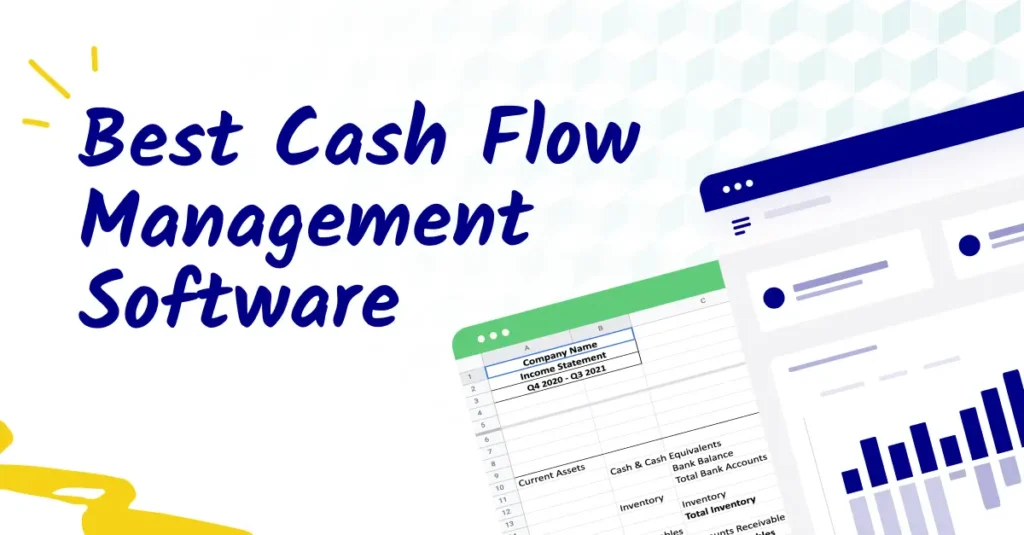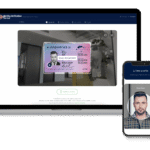Cash flow is the lifeblood of every small business. Without consistent visibility into incoming and outgoing money, even profitable companies can run into financial trouble. In fact, a U.S. Bank study found that 82% of small business failures are due to poor cash flow management.
That’s why more entrepreneurs are turning to cash flow management software. These tools help automate tracking, forecasting, and reporting, so small business owners can make smarter financial decisions and avoid liquidity pitfalls.
In this article, we’ll review the top 10 cash flow management software for small businesses, comparing their features, benefits, and ideal use cases.
Key Features to Look for in Cash Flow Management Software
Not all tools are created equal. The best cash flow management software for your small business should offer features that make managing money simple, accurate, and future-focused. Here are the essentials:
- Real-Time Tracking: Syncs with bank accounts to show up-to-date balances and transactions.
- Forecasting & Scenario Planning: Projects future cash flow and models “what if” situations.
- Automated Invoicing & Payments: Ensures faster collections and reduces late payments.
- Expense Categorization: Organizes costs into clear categories for better insights.
- Integrations: Works seamlessly with accounting platforms (QuickBooks, Xero, etc.) and business tools.
- Customizable Dashboards: Provides visual clarity on cash inflows, outflows, and upcoming obligations.
- Collaboration Tools: Enable multiple team members or departments to contribute to financial planning.
Best 10 Cash Flow Management Software for Small Businesses
Managing cash flow effectively is essential for every small business, but manual spreadsheets can only take you so far. The right tool gives you real-time visibility, accurate forecasting, and smarter financial decisions, helping you stay ahead of surprises.
Here are 10 of the best cash flow management software options worth considering:
1. QuickBooks Online
QuickBooks is one of the most popular accounting tools worldwide, and for good reason. Beyond bookkeeping, it offers powerful cash flow insights with real-time tracking of income, expenses, and forecasts.
- Best For: Small businesses that want an all-in-one accounting and cash flow solution.
- Key Features: Automatic expense categorization, invoicing, integration with banks, and cash flow forecasting dashboards.
- Why It Works: QuickBooks is simple enough for non-accountants but robust enough to scale with growing businesses.
2. Xero
Xero has become a favorite among startups and small business owners thanks to its clean interface and collaboration features.
- Best For: Businesses seeking cloud-based, easy-to-use financial software.
- Key Features: Bank reconciliation, real-time cash tracking, bill management, and more than 1,000 integrations.
- Why It Works: Its user-friendly dashboards make it easy to monitor short-term and long-term cash positions.
3. FreshBooks
FreshBooks is designed with freelancers and service-based businesses in mind. It combines invoicing with cash flow monitoring to keep projects profitable.
- Best For: Freelancers, consultants, and small service-based businesses.
- Key Features: Automated invoicing, time tracking, expense tracking, and financial reports.
- Why It Works: The software simplifies cash flow for entrepreneurs who don’t want overly complex tools.
4. Float
Float integrates directly with accounting systems like QuickBooks, Xero, and FreeAgent to deliver cash flow forecasts and scenario planning.
- Best For: Businesses needing advanced cash flow forecasting.
- Key Features: Scenario modeling, detailed forecasting, integration with accounting systems.
- Why It Works: It helps owners plan ahead by showing how decisions (like hiring or equipment purchases) will affect cash.
5. Pulse
Pulse focuses exclusively on cash flow management rather than full accounting. This makes it highly specialized and effective for planning.
- Best For: Business owners who want a dedicated tool for cash flow planning.
- Key Features: Customizable reports, recurring income/expense tracking, scenario analysis.
- Why It Works: By stripping away accounting clutter, Pulse keeps cash management simple and actionable.
6. PlanGuru
PlanGuru is built for financial planning and budgeting, with strong forecasting tools that complement accounting platforms.
- Best For: Growing businesses that need more than simple spreadsheets.
- Key Features: 20+ forecasting methods, budgeting, KPI tracking, and financial statement projections.
- Why It Works: It bridges the gap between small business tools and enterprise-grade financial planning.
7. CashAnalytics
CashAnalytics is tailored for businesses that want detailed visibility across multiple accounts and teams.
- Best For: Small-to mid-sized businesses with complex structures.
- Key Features: Consolidated cash reporting, forecasting, variance analysis.
- Why It Works: It eliminates guesswork for companies managing multiple entities or business units.
8. Dryrun
Dryrun provides visual forecasting, making it easy to model different financial scenarios and “what if” situations.
- Best For: Business owners who want easy visualization of future cash flow.
- Key Features: Multi-scenario planning, sales forecasting, integration with Xero and QuickBooks.
- Why It Works: Its scenario modeling helps small businesses prepare for both best- and worst-case outcomes.
9. Agicap
Agicap is popular among European SMEs and offers real-time financial dashboards that focus heavily on cash flow visibility.
- Best For: Small businesses in need of real-time monitoring.
- Key Features: Bank synchronization, team collaboration, expense tracking, and forecasting.
- Why It Works: Its automation saves time by consolidating data from multiple bank accounts and systems.
10. Zoho Books
Zoho Books is part of the Zoho suite, making it ideal for small businesses already using other Zoho apps.
- Best For: Cost-conscious businesses looking for strong value.
- Key Features: Invoicing, automated workflows, expense tracking, GST/VAT compliance, and reporting.
- Why It Works: Affordable yet powerful, Zoho Books is especially attractive to startups with lean budgets.
How to Choose the Right Cash Flow Management Software
Not every tool will be the right fit for your business. Here are a few tips to guide your choice:
- Consider Your Business Type: Service-based vs. product-based businesses may need different features.
- Look for Integrations: Pick software that connects easily with your existing accounting tools.
- Focus on Ease of Use: The best software won’t help if your team finds it too complicated.
- Check Pricing Plans: Make sure it fits your budget, especially if you’re scaling.
- Prioritize Forecasting: Choose a tool that lets you plan for multiple scenarios, not just track expenses.
Final Words
Cash flow isn’t just about keeping the lights on, it’s about giving your business the agility to grow with confidence. The right cash flow management software helps small businesses move beyond spreadsheets by automating tracking, forecasting future needs, and providing real-time visibility into finances.
From robust all-in-one solutions like QuickBooks and Xero to specialized tools like Float and Pulse, there’s a platform designed for every type of business. Choosing the right software depends on your size, industry, and goals, but the outcome is the same: more control, fewer surprises, and better decisions.





